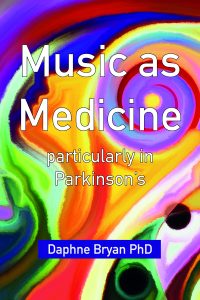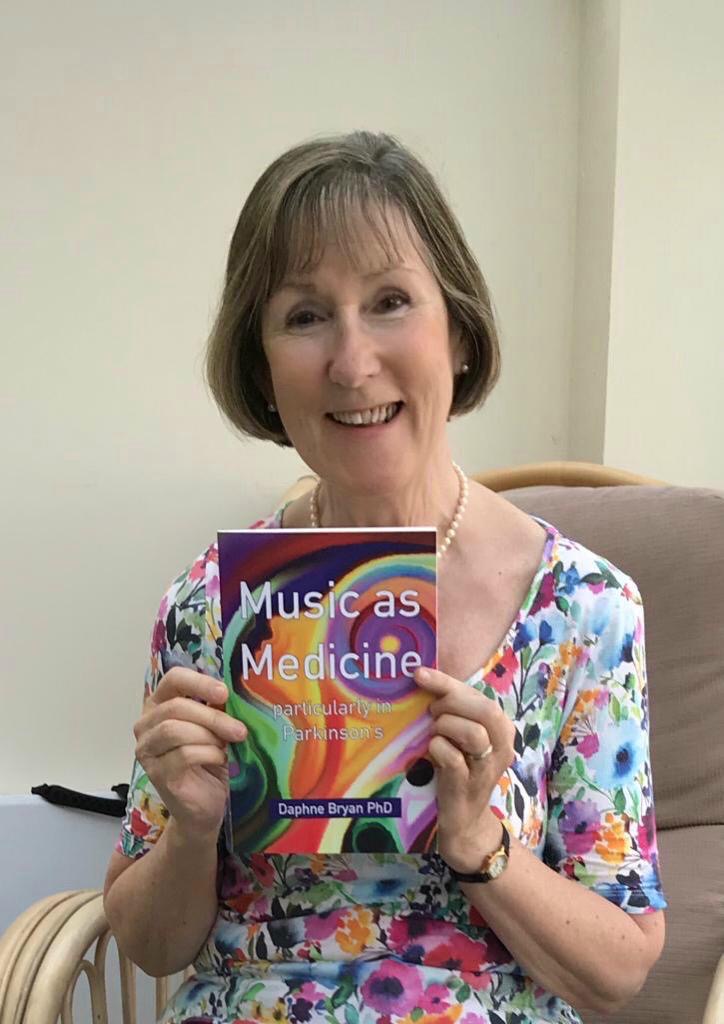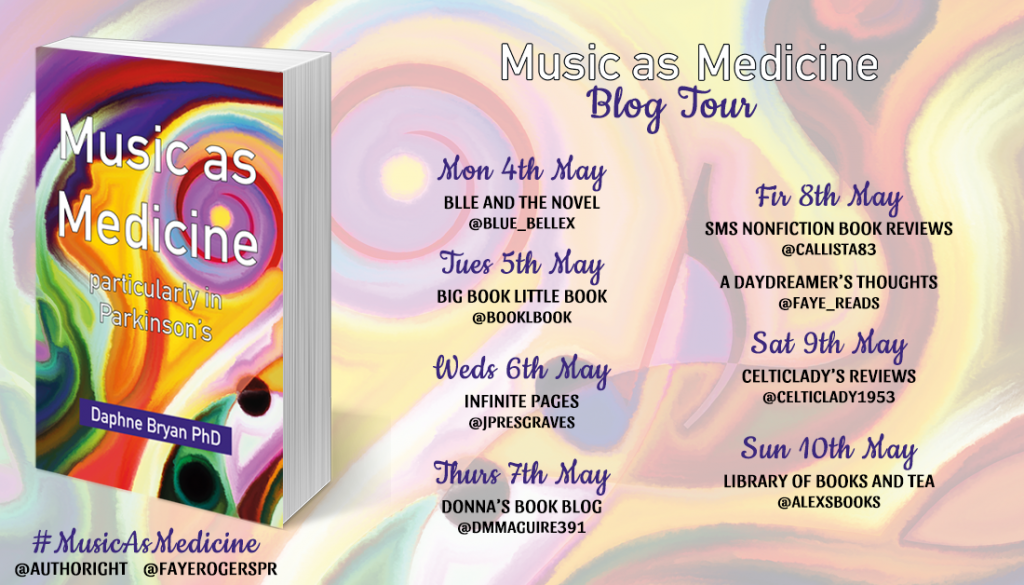Author Interview: Daphne Bryan PhD
Author Interview: Daphne Bryan PhD
Hey All!
Today is my stop on the Music as Medicine blog tour and I am here today with an interview with the author!
 Title: Music as Medicine
Title: Music as Medicine
Author: Daphne Bryan PhD
Publisher: Clink Street Publishing
Published: 20th April 2020
Format: Paperback
Source:: N/A
Add It: Waterstones. Goodreads.
Summary: Music can play an important part in our lives yet how many of us appreciate the effect it has on our brains, bodies and moods, or understand how we can use music as a medicine? Music has the power to reduce everyday symptoms, such as stress, insomnia, pain, depression, and even snoring, as well as helping challenges found in neurological conditions such as freezing and gait problems, and difficulties with voice and swallowing.
With modern advances in technology, scientists are now able to measure the precise effect of music on body and brain. Music as Medicine presents many research studies which have examined the effect of music on various conditions, and offers clear suggestions as to how readers can use music to reduce various symptoms, whether a person thinks themselves musical or not. It covers three aspects of musical involvement: listening to music, moving to music and making music.
Daphne Bryan, PhD, takes a special look at the benefits of music for neurological conditions, Parkinson’s in particular. Music stimulates many areas of the brain and in the case of damaged brains, it can activate alternative pathways to act in the place of damaged ones. Many of the symptoms discussed are also experienced by people with other diagnoses and by those who are otherwise fit and healthy so this book contains much that is relevant to all.
The Interview
Where did the inspiration for your book come from?
When I considered writing a book, it made sense to bring together subjects I knew a lot about. I had been a music teacher all my life, had studied music psychology at MA and PhD level and had been diagnosed with Parkinson’s ten years before. So I set about researching how music could reduce Parkinson’s symptoms.
How would you entice someone to pick up your book?
I would ask them to consider how much music filled their day and ask them if they were aware of the effect music had on their body, brain and mood.
I would tell them that the book looked at a wide range of symptoms experienced by nearly all of us at some time: anxiety, depression, insomnia, pain, even snoring and tell them that the book explains how music can be used to reduce these symptoms.
If they had a neurological disease, then I would tell them that the book explains how music can reduce symptoms which are not always helped by medication.
Why do you feel music is so important?
I feel music is important because it affects all of us, from babyhood to old age, in our body, brain and mood. It can be used to calm us, prepare us for sleep, lift depression, reduce pain, improve our thinking, encourage us to move, lift our fatigue, reduce cortisol, increase oxytocin, release endorphins, strengthen our immune system, and offer us a means of self-expression and creativity.
Do you listen to music while you write?
I usually play music in the background while I write. This is usually music on a classical radio station. One study, published 25 years ago, suggested that listening to the composition – Mozart Sonata for two pianos in D major – could improve cognitive ability. Attempts to replicate the study were mixed however but further studies playing different background music to participants did have success in improving IQ scores, learning a second language, arithmetic skill and reading. What they did find, and what I have found, is that if the task becomes more difficult, music can get in the way. At times like this, I turn off the music while I concentrate.
Do you have a favourite song?
I do not have a favourite song. I enjoy many songs and pieces of music from all styles. Different songs appeal at different times depending on my mood. Although I listen to a lot of classical music as background, the music that I play while I exercise is selected for its strong beat and speed.
How often do you listen to music yourself?
I switch music on when I wake in the morning and leave it on while I am busy around the house. If I go for a walk, I play music to step to, selected because of its strong beat and speed. I like to listen to music through meals and during the day I also play music to sing along with. I select calming music to listen to through my siesta time and to prepare me for sleep at night.
About the Author

Daphne Bryan began playing the piano at the age of seven and at 13 was awarded a county scholarship to study piano and voice. She continued her studies at music college, where she was awarded the piano prize in her second year.
After college, Daphne taught music in schools in Salford, London and Hampshire and then in British Forces schools in Germany and Belgium. During this time, she also taught piano privately and trained several choirs.
At the age of 51, she gained an MA with distinction from Sheffield University in Psychology for Musicians and, four years later, a PhD in music psychology.
In 2010, she was diagnosed with Parkinson’s. Since then she has researched keenly to find ways in which she can positively influence her health. Music has provided many ways through which she has reduced her symptoms.
She still teaches piano and trains a choir.
Follow the Tour

Will you be reading this book?

